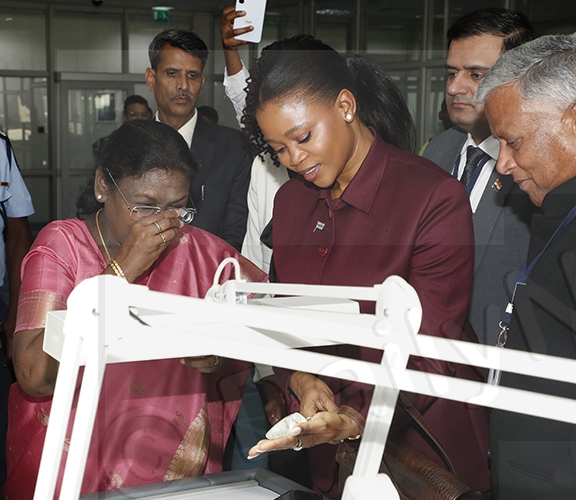Rural areas offer business opportunities
26 Aug 2020
In most societies, it is generally perceived that male-dominated trades are more prosperous that those dominated by females.
However, some trades such as dressmaking have stood the test of time in rural areas, where most tailors are women.
This characteristic could be stemming from the traditional division of roles, as dressmaking was a trade associated with women who passed the skill on to girls. While some girls learnt the skill from home, others learnt it from school.
However, in this era, where business opportunities are hard to come by, a line separating male from female jobs is getting blurred.
Ms Tshegofatso Kebabope of Majwanaadipitse settlement in the Central District is one of those who have realised that staying in a rural area should not be allowed todumpen anyone’s spirits, as such a place had potential of putting food on one’s table. The 61-year-old, born and bred in Majwanaadipitse, owns Batontoki Holdings, a dressmaking business.
Ms Kebabope said she fell in love with sewing when, as a child, she used to watch his mother sewing clothes for members of the family using a domestic machine.
“By then, I never thought it would be something I can survive on, but here I am today. I eat, drink and live sewing. It is now part of my life,” she said.
Ms Kebabope said in 2013 he went to Francistown Brigade, where she completed her Dressmaking course and started her fashion company in 2014.
Through Poverty Eradication Programme, Ms Kebabope managed to acquire electronic dressmaking machines after going through a short course.
She said that was when she began to realise her strength in dressmaking.
The programme bought her four different sewing machines and a generator to kick start her business, which was doing well before the COVID-19 pandemic.
“Prior to COVID-19 outbreak, I used to supply the village primary school with uniform, but the recent lockdown and social distancing halted my business.”
With the money she got from her business she started a tuck-shop and also bought 40 layers.
She now supplies the school with eggs.
She expressed her gratitude towards the programme, insisting that she was now able to expand her dreams and hoping for an even better life and business prospects.
Ms Kebabope also indicated that the Poverty Eradication Programme had, in so many ways, improved her life as beneficiaries learnt ‘how to catch fish instead of government catching it for them.”
She acknowledged that like any other business, dressmaking had its own challenges such as lack of market, and added that lack of electricity in the village was also a thorn in the flesh as she used a generator, which had proved to be taxing.
She said some customers preferred reputable tailors in big villages such as Serowe, Palapye and even as far as Gaborone over the rural folks.
Despite these hiccups, Ms Kebabope said she was aware that Rome was not built in a day and that despite the COVID-19 effects, she would bounce back.
“I have already started marketing the project in other villages in the region and that has started bearing some fruit,” she said.
Batontoki Holdings specialises in school uniform, traditional attire, African attire and masks, among others.
Ms Kebabope urged other Poverty Eradication Programme beneficiaries to take their businesses seriously, insisting that they were capable of creating employment for other community members. ends
Source : BOPA
Author : Tshiamiso Mosetlha
Location : MAJWANAADIPITSE
Event : Interview
Date : 26 Aug 2020





